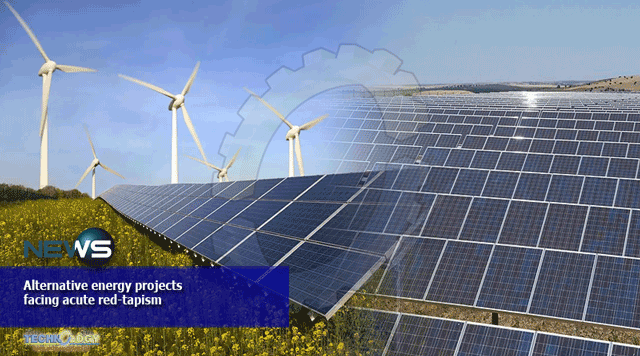Several alternative energy projects have failed to achieve financial close in the stipulated time due to procedural bottlenecks that stand against a government’s plan to increase renewable power share in the thermal-focused energy market, industry officials said on Monday.

A power producer Trans Altantic Energy filed an application for review of its tariff determination, which provides the tariff would be void if financial close is not achieved in a year.
“The project was required to achieve the financial close of the project within one year from the grant of tariff determination,” the company said in an application. “However, Alternate Energy Development Board (AEDB) did not proceed with the project through the issuance of letter of support.”
Similarly, Burj Wind Energy has missed the timeline for financial close and sought review of the tariff determination.
“The company made consistent and diligent efforts to achieve financial close within one year from the date of issuance of tariff determination,” it said. “However, such efforts have been stalled due to inordinate delays on part of Alternative Energy Development Board (AEDB) and Central Power Purchasing Agency (CPPA).”
A government official, without commenting on the reason, said power producers approached the National Electric Power Regulatory Authority (Nepra) with applications seeking six month extension in their tariff determination validity.
The government of Pakistan is contemplating an aggressive plan to increase the share of RE in the energy mix of the country to 20 percent by 2025 and to 30 percent by 2030 from the current level of less than 5 percent.
In February 2019, the cabinet committee on energy set up three categories of projects. Category-I included projects that were issued letter of support by the AEDB and category-II included projects that were granted tariff determination by the authority. Both category-I and category-II projects were allowed to proceed to financial close as per the policy for Development of Renewable Energy for Power Generation 2006. The committee said only projects that “have not received a tariff from Nepra” would be required to participate in competitive bidding.
Moreover, the Central Power Purchasing Agency (CPPA-G) refused to provide consent for purchase of power from new renewable electricity generation plants.
“CPPA cannot provide consent for purchase of power from new renewable energy projects,” the agency said in its comments submitted to power regulator in response to applications of certain renewable power producers. “There is no policy for induction of renewable energy and for the proposed additions of capacity in the system, due consideration should be carried out by Nepra prior to issuance of generation licenses”. CPPA has already stopped issuing any power acquisition requests to the projects therefore, it may not be considered as a power purchaser of new alternate energy projects. The existing energy mix of the country is heavily skewed towards the costlier thermal power plants, mainly operating on imported fuel. The import of fuel for electric power generation not only causes depletion of the precious foreign exchange reserves of the country but is also an environmental concern.